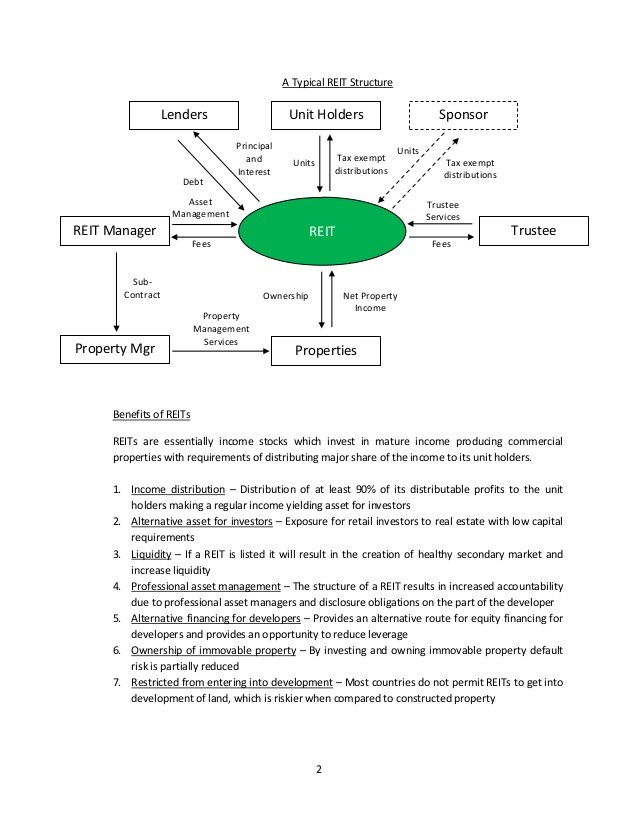Should You Invest in Real Estate Investment Trusts (REITs) High Income Possible
Post on: 22 Май, 2015 No Comment

REITs Offer Stock Investors the Potential of High Income
You can opt-out at any time.
Please refer to our privacy policy for contact information.
Real estate investment trusts (REITs) are legal organizations that invest in and often operate income producing commercial real estate.
REITs enjoy some tax benefits, but must meet some qualifications to win the designation. Among the most important of qualifications is REITs must distribute 90% of its income to its investors (this lets it avoid paying corporate income taxes).
This makes a successful REIT a great choice for people looking for current income.
Some REITs are traded on stock exchanges just like common shares of stock, while others are privately held.
The basic idea is the REITs pool capital from investors and then buy commercial or income-producing real estate, using leverage to extend its buying power.
For example, an REIT could buy an office building, hire a manager and collect all the rents. The REIT would distribute 90% of the income to investors.
This works great when the commercial real estate project is full and tenants are paying their rent. Unfortunately, in a poor economy it may be difficult to find rent-paying commercial tenants.
However, the mortgage, taxes, maintenance and so on must still be paid whether the building is rented or not.
Many REITs specialize in a particular type of real estate, such as commercial office buildings, shopping centers, health care facilities and so on.
This specialization can be a two-edged sword. If the REIT specializes in real estate that appeals to a hot segment of the economy (health care facilities, for example), it can do quite well.
On the other hand, REITs specializing in property for a struggling segment of the economy will struggle also.
What are the advantages to stock investors:
- REITs may be a good addition to fixed income portfolios
- Those traded on stock exchanges offer a convenient way to buy and sell your holdings
- A successful REIT may pay a higher return than bonds with little more risk
On the downside:
- If the economy turns against a REIT, the value could plummet and selling your shares might be difficult
- Many are not diversified in their holdings, which can be a problem if the economy is struggling or the sector is specializes in is struggling
- Private REITs may not have the liquidity you need to sell when you want
REITs should not be a major portion of your portfolio, but they do offer interesting income opportunities if you buy in at the right time (when share prices are depressed). Of course, you must have confidence that they market for your REIT’s property will rebound.














